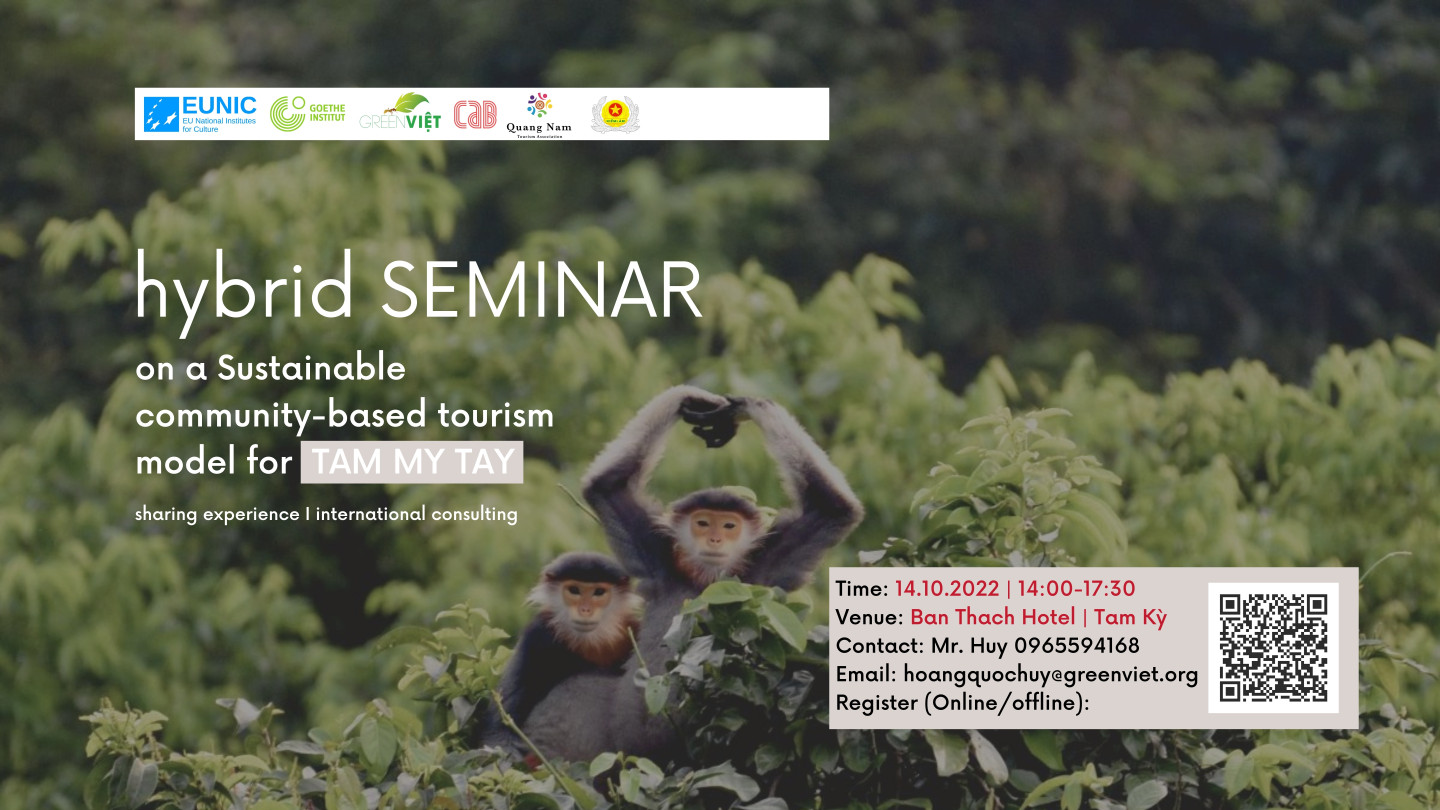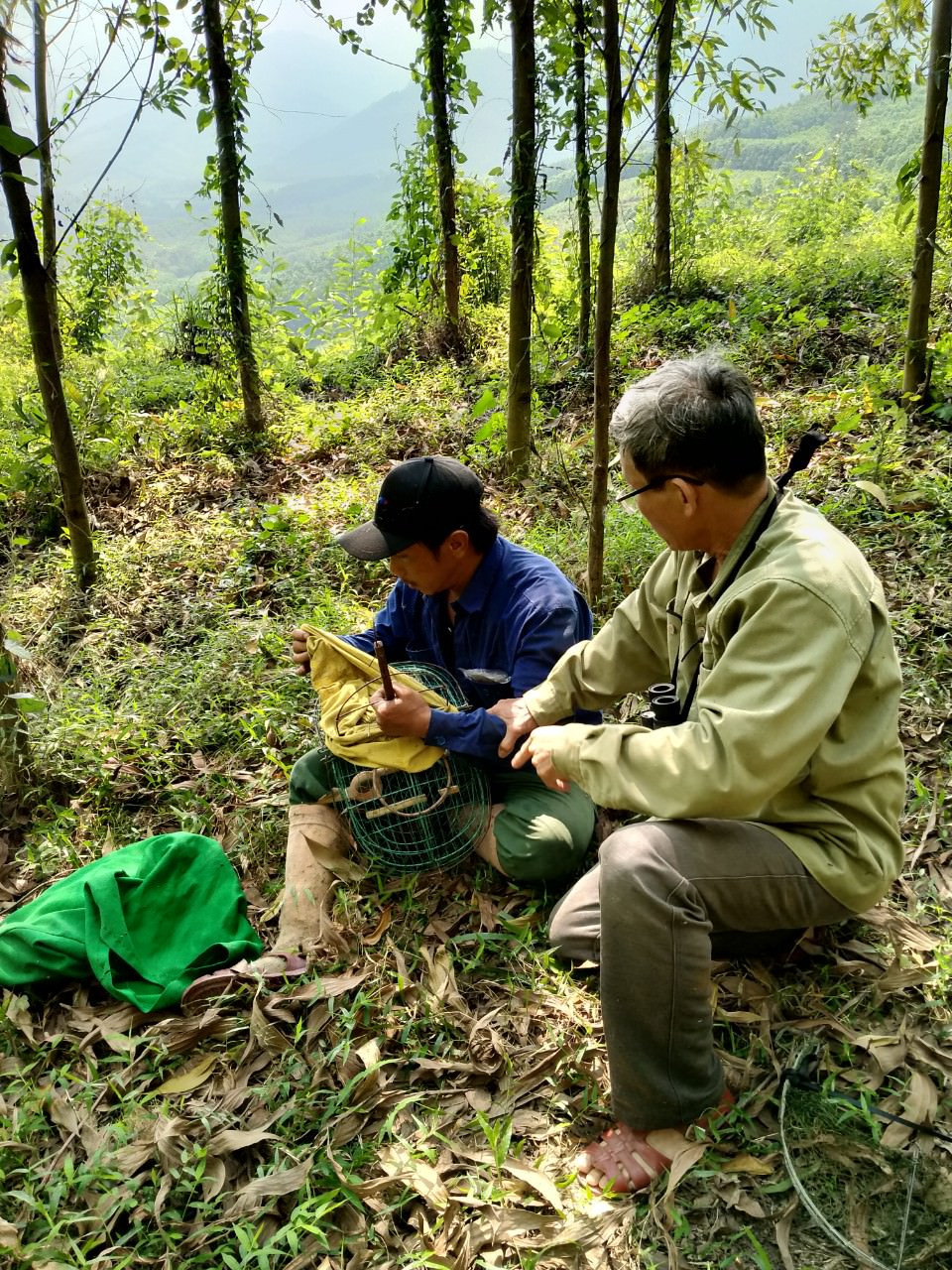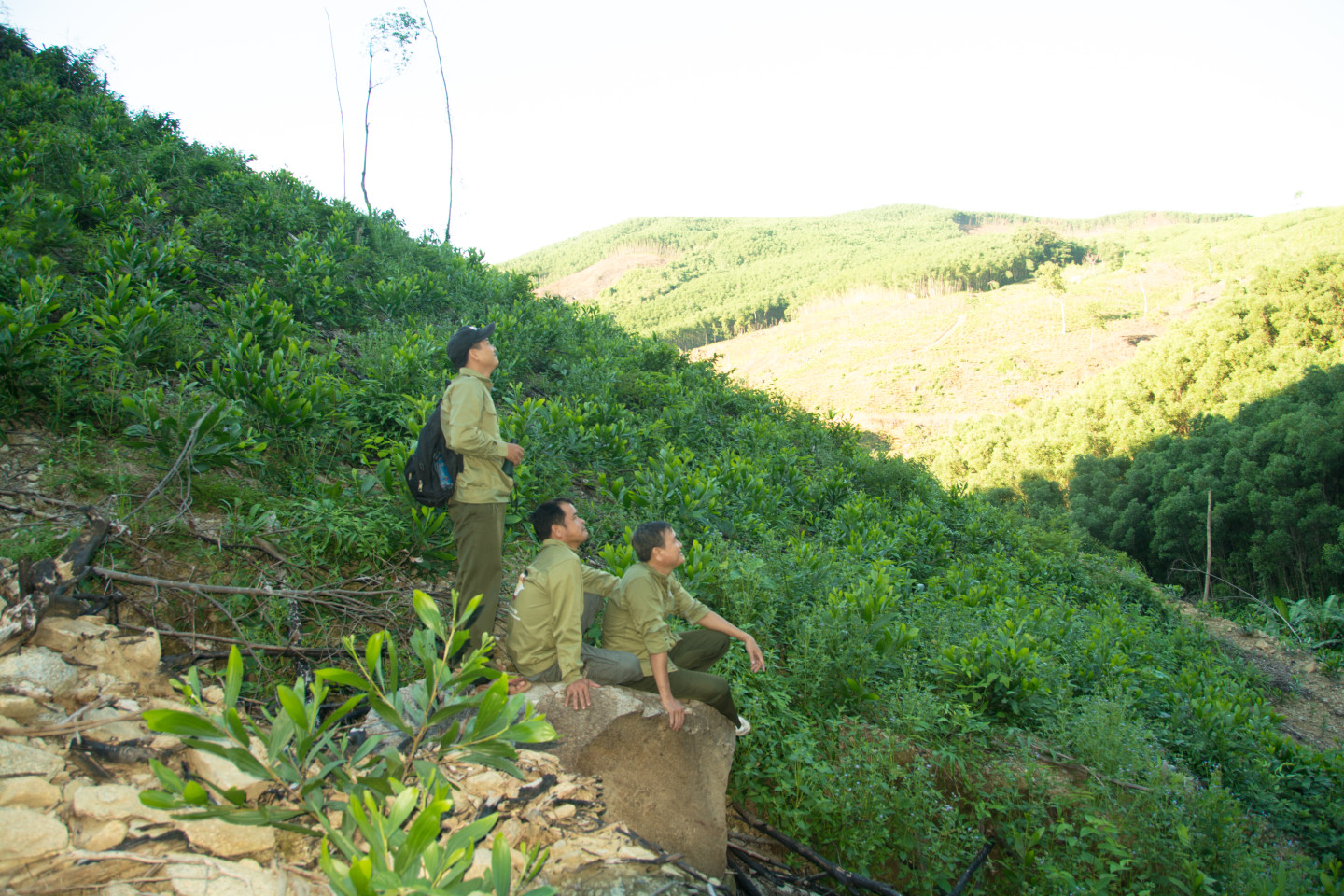Supported by the Cluster Fund 2021, EUNIC Vietnam and its local partners successfully advocated for draft regulations on sustainable community-based tourism in Tam My Tay, Quang Nam, Vietnam. In close collaboration with the local community and local authorities as well as international partners, the project was based on vast culture research. A dedicated web page maps stories of biodiversity conservation and indigenous culture and where practices of quality culture- and eco-tourism with benefits for all local stakeholders, especially the local community, are promoted.
An example of how important culture is in achieving sustainability
The project contributes to the long-term development of sustainable community-based tourism promoting indigenous cultural values (SDG 12), enhancing local biodiversity conservation (SDG 15), and creating a sustainable alternative livelihood for local people, especially inspiring young people to do business in their own hometown (SDG 8 & 11). Developing community-based tourism in Tam My Tay - an area rich of biodiversity - is in alignment with the provincial strategies.
This potentially creates jobs, improves the lives of farmers by bringing income and stable livelihoods to farmers, and helps people stick with their homeland. Through community-based tourism activities, the project has contributed to raising awareness of building a cultural environment, a civilized and clean landscape, restoring and preserving the national cultural identity, and creating a difference to attract tourists.
Nguyen Thi Linh Phuong, Department of Culture, Sports and Tourism, Quang Nam International webinar on experience sharing and orientation of sustainable community-based tourism development in TMT
Active participation of the Tam My Tay commune
From its beginning, the project put the local community at the center of its implementation. Understanding that local people should take ownership of the model, the cluster worked closely with the local partners to learn more about their needs. They were involved in consultation workshops and capacity building sessions. Their voice regarding their rights and benefits is raised and listened through the project.
This project has helped TMT commune with orienting how to develop our alternative livelihood; the future tends to develop strongly. However, local authorities need to pay more attention to conservation as well as tourism development, enhance innovation and multi-stakeholder cooperation to help improve the local livelihoods.
Vo Ngoc Danh, member of the conservation pioneer group Consultation meeting
Fair collaboration for jointly achieving sustainability
The project demonstrates a bottom-up approach where the local civil society organisations are enabled to address the problems of their own community, and where they are the ones taking the ownership of the joint initiative. The involvement of the local community aims at strengthening their role in the land and preparing for their long-term benefit. Cooperation is based on a set of core values including human-centred solutions, mutual empathy, open communication and agility.
The project also recognizes the great contribution from and solidarity among European organizations. There was a great mobilization of regional and international resources for expertise in community-based tourism which was done by the EUNIC cluster members in Vietnam. This project opens up chances for new connections between our local partners and new European institutions and experts in the comparable field.




